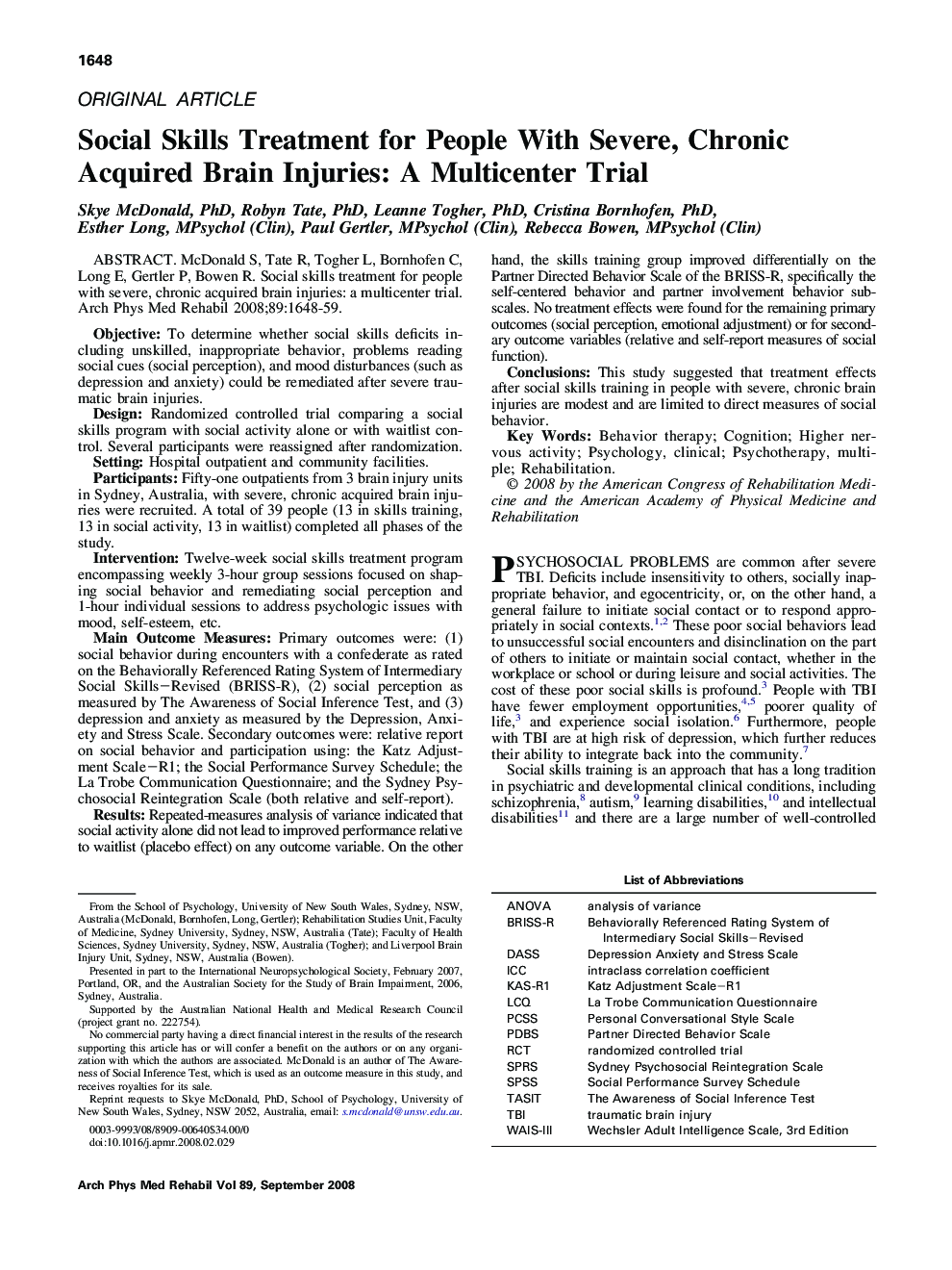| کد مقاله | کد نشریه | سال انتشار | مقاله انگلیسی | نسخه تمام متن |
|---|---|---|---|---|
| 3450438 | 1595775 | 2008 | 12 صفحه PDF | دانلود رایگان |

McDonald S, Tate R, Togher L, Bornhofen C, Long E, Gertler P, Bowen R. Social skills treatment for people with severe, chronic acquired brain injuries: a multicenter trial.ObjectiveTo determine whether social skills deficits including unskilled, inappropriate behavior, problems reading social cues (social perception), and mood disturbances (such as depression and anxiety) could be remediated after severe traumatic brain injuries.DesignRandomized controlled trial comparing a social skills program with social activity alone or with waitlist control. Several participants were reassigned after randomization.SettingHospital outpatient and community facilities.ParticipantsFifty-one outpatients from 3 brain injury units in Sydney, Australia, with severe, chronic acquired brain injuries were recruited. A total of 39 people (13 in skills training, 13 in social activity, 13 in waitlist) completed all phases of the study.InterventionTwelve-week social skills treatment program encompassing weekly 3-hour group sessions focused on shaping social behavior and remediating social perception and 1-hour individual sessions to address psychologic issues with mood, self-esteem, etc.Main Outcome MeasuresPrimary outcomes were: (1) social behavior during encounters with a confederate as rated on the Behaviorally Referenced Rating System of Intermediary Social Skills−Revised (BRISS-R), (2) social perception as measured by The Awareness of Social Inference Test, and (3) depression and anxiety as measured by the Depression, Anxiety and Stress Scale. Secondary outcomes were: relative report on social behavior and participation using: the Katz Adjustment Scale−R1; the Social Performance Survey Schedule; the La Trobe Communication Questionnaire; and the Sydney Psychosocial Reintegration Scale (both relative and self-report).ResultsRepeated-measures analysis of variance indicated that social activity alone did not lead to improved performance relative to waitlist (placebo effect) on any outcome variable. On the other hand, the skills training group improved differentially on the Partner Directed Behavior Scale of the BRISS-R, specifically the self-centered behavior and partner involvement behavior subscales. No treatment effects were found for the remaining primary outcomes (social perception, emotional adjustment) or for secondary outcome variables (relative and self-report measures of social function).ConclusionsThis study suggested that treatment effects after social skills training in people with severe, chronic brain injuries are modest and are limited to direct measures of social behavior.
Journal: Archives of Physical Medicine and Rehabilitation - Volume 89, Issue 9, September 2008, Pages 1648–1659